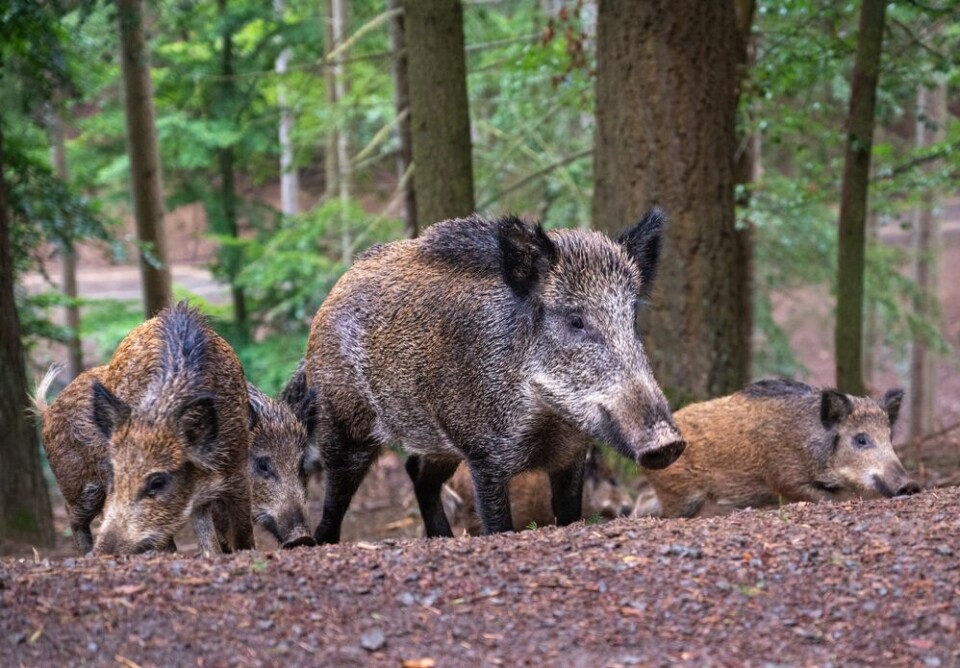-
Why we bought horses after moving to France – and what it taught us
When reader Sam Barcham, 48, moved from England to the south of France, she never anticipated that riding lessons would lead to buying three horses of her own
-
Are pet vaccines a legal requirement in France?
Certain vaccinations are mandatory before animals can travel
-
France faces growing threat from invasive ‘electric ant’ species as funding for projects stalls
Aggressive colonies are difficult to eradicate and researchers need approval to test new methods
What to do if you cross a boar while out walking in France?
The animals can be aggressive but generally only if they feel threatened

Reader Question: I live in a rural area near a forest, where I know there is a wild boar population. I want to walk my dog in the woods but I am scared of coming into contact with a boar. What should I do if I come across one?
The CNRS (Centre national de la recherche scientifique) estimates there are more than a million wild boar (sangliers) in France, so coming across one when out in rural areas is not that uncommon.
Wild boar in France can weigh up to 150 kg, and are known for their powerful charge and tusks.
They mainly live in forested areas, but have been known to come close to inhabited areas – including gardens – as they are excellent foragers and will attempt to eat any food they can.
However, boars are not aggressive towards humans by nature, and unlikely to attack on sight. They may be aggressive due to other factors such as the presence of dogs or being chased during a hunt.
Do not engage with the animal
If you do see a boar, the best thing to do is remain calm, as sudden movements or loud noises can cause it to panic, particularly if it is a female with her young.
Note that boars are more skittish and protective around their young, and if you see baby boars be extra cautious not to anger their parents.
Other than to protect their young, boars mainly attack if they feel threatened or believe they are being hunted, so you should avoid moving directly towards the animal.
You should continue on your route, unless this would bring you into close or direct contact with the animal in which case you should back away slowly and return the way you came.
Moving towards a boar, especially at a quickened pace, may turn it aggressive.
Read more: Hunter dies after being charged by boar in south of France
Although it may be tempting, taking a photo of the animal with the flash of your camera on could also startle the animal and cause it to charge you.
If the animal does charge, you should get to high ground, such as on a rock or up a tree, immediately. If you cannot do this, standing with your back up against a large tree is the next best choice.
If you come across a wild boar which is sick you should also avoid touching it even if you think you are helping by doing so.
Read more: How to raise alarm if you see a pet in distress on your French travels
Instead contact the local mairie first, who can send an expert or vet, or failing that the local police or gendarmerie office.
Avoid hunts
Hunting parties can also startle boars, causing them to charge through forests regardless of how you act towards them.
If you live in an area popular with hunters, contact your department’s hunting lodge (federation de chasse) to find when hunts are taking place.
On these days avoid areas where you would expect to encounter boar.
Read more: Hunting season opens in many areas of France: what's good to know
What if I spot a boar when walking my dog?
If you are walking your dog in an area where there is a chance of seeing wild boar, you should keep the pet on a lead, even if your dog wants to run free.
Your dog may startle a boar by running at it.
If you spot wild boar multiple times in the same area when walking your dog you may wish to consider alternative routes.
Related articles
Can we claim on house insurance if boars damage our French garden?
























